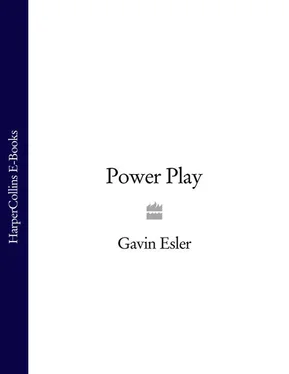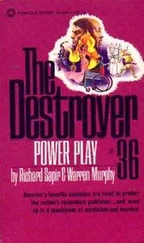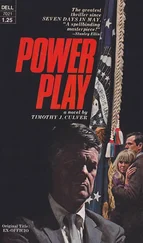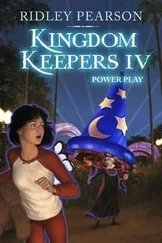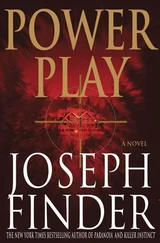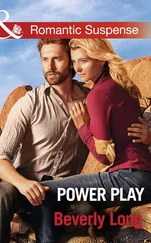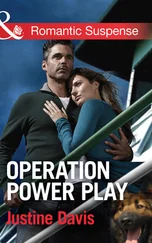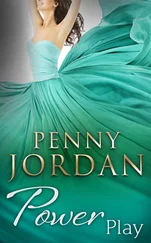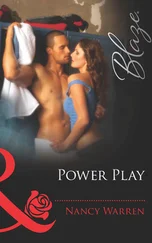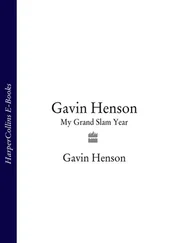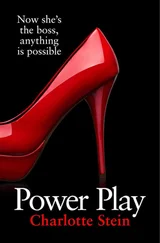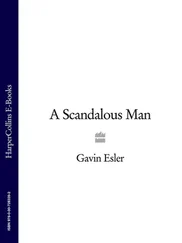‘Not necessarily,’ I said. ‘The Israelis would need to fly through Jordanian and Iraqi airspace. If you didn’t want them to do so, they couldn’t.’
Kristina shook her head impatiently. ‘That’s not my point. Once Vice makes public any kind of threat against Iran, we will end up going to war. I know how he operates. He will argue that our credibility is at stake and we have to follow through. It’s like World War One–you have train timetables and you start mobilizing your soldiers and in the end you can’t stop the war even if you want to. But that’s not the worst. The Israelis are letting it be known that the bunker-busters that we supplied them cannot get the job done.’
Bunker-busters are bombs or missiles capable of causing an explosion a long way underground.
‘Exactly,’ I said, ‘which is why negotiations are the only way …’
She interrupted again, very impatiently. ‘Which is why there are those within the Israeli government who are talking about Canned Sunshine.’ My jaw dropped. ‘Canned Sunshine’ is a military expression for a nuclear bomb. ‘They are calling for nuclear pre-emption.’
‘Nuclear pre-emption?’ I blurted out. ‘That’s … that’s like committing suicide because you fear dying. They couldn’t possibly drop a nuke …’ She waved me quiet.
‘Vice says Spartacus applies to states as well as to individuals, and if ever a regime needed to be crucified, it’s the Iranians. He wants to hit them after the mid-terms. Or to get the Israelis to do it.’
‘Oh, fuck,’ I said.
‘And if we do go in, we will call on all possible support from all our allies. Which means you, Alex.’
I didn’t feel like eating breakfast any more. I drank my coffee and left to return to the embassy, where I called Downing Street immediately on the secure line.
‘How do we feel about being sucked into war with Iran?’ I said to Andy Carnwath.
‘What the fuck do you mean, Alex?’
I explained about Canned Sunshine. For once Andy Carnwath could not think of any expletives appropriate to the information.
Later that night, around midnight, I was lying on my bed reading a book, sipping whisky and water and listening to a CD of Charlie Parker. Kristina called me on my private cellphone.
‘You’re up late,’ I said.
‘You got time to talk?’
‘Of course.’
I pushed the book I was reading to one side. It was called Sleepwalking to Hell, a recently published history of the Weimar Republic and the rise of the Nazis, written by Kristina’s former lover, the University of California history professor Stephen Haddon. A liberal, I guessed, with a strong libertarian streak. Haddon argued that the transition from a sophisticated and prosperous Weimar democracy to a Nazi dictatorship was not one catastrophic leap. It was a series of little steps.
Any one of these steps might seem sensible by itself because the German people wanted to escape Bolshevism, anarchy, and economic collapse, but taken together they led decent people inexorably towards the Nazis. Haddon wrote in his preface that it could happen again. Terror produced terrified people, and terrified people made bad decisions.
‘Is that jazz?’ Kristina said.
I turned it down.
‘Charlie Parker.’
‘Perfect,’ she said. ‘Just perfect.’
Kristina was on her way home. President Carr and the First Lady, Rosa Carr, had invited her to the private White House movie theatre to watch a film with the Carr family, Bobby Black and his wife Susan, Arlo Luntz, and a couple of Democratic senators that Theo Carr had decided he should get to know better. The senators were on the Armed Services Committee, and Carr was still after more money for the Pentagon budget. It was a huge mark of confidence in Kristina to be invited to share private time with the President, and she was bubbling with enthusiasm. I wasn’t really listening. I had something I had been meaning to say, and that night I said it.
‘Instead of going home, Kristina, why not come here right now. Spend the night with me.’
She giggled. Then the line went quiet.
‘You mean it, Alex?’
‘Yes, I mean it,’ I said. ‘I have meant it for months.’
The visit of Bobby Black to Scotland took so long to organize I sometimes thought it would never happen. But it did happen, almost exactly two years after he and Prime Minister Davis had their first row at Chequers and just two weeks before the US mid-term elections which, yet again, all the experts, polls, and pundits claimed were going to offer a very sharp rebuke to the Carr administration. In preparation for the shooting trip, Vice-President Black insisted that the visit be kept as private as possible, and that his entourage be as small as possible. I spent hours on the telephone with Andy Carnwath in Downing Street and Sir Hamish Martin at Buckingham Palace fixing exactly who would meet Bobby Black at which point, who would shoot grouse, when he would meet Her Majesty the Queen, when Susan Black would go off to see the horses, and when Fraser Davis would turn up. I also talked repeatedly with Lord Anstruther, who was a Junior Defence Minister in Fraser Davis’s government and whose estate was right next to the royal estate at Balmoral.
Anstruther had agreed to host the visit, though if he had realized exactly what he was in for, he would have told me to get lost. I tried to explain that when the President or Vice-President of the United States moves anywhere, it is rather like a medieval pope moving around Christendom–up to a thousand staff, journalists, hangers-on, advisers of all kinds–but, until Anstruther experienced it, I don’t think he quite understood how big a ‘small entourage’ really was going to be. In the week before the visit I had called the Prime Minister to warn him, yet again, that it must not fail.
‘We cannot afford a repeat of the row at Chequers,’ I said. ‘You and Bobby Black are fated to like one another, whether you want to or not.’
Fraser Davis was very positive. He asked me to go over the arguments he should use with Bobby Black to deflect him from a confrontation with Iran without causing a row, and the kinds of things he should say if the question of special visas for British citizens of Pakistani origin were to be raised.
‘We say it is unfair, unworkable, discriminatory and the twenty-first century equivalent of the Jim Crow laws,’ I said. Then I reminded the PM that the policy details were not significant. What was significant was the tone. The policy would come right as long as he was nice. Very nice.
‘But I’m always nice, Alex,’ Fraser Davis replied, sounding rather hurt. I could imagine his wet, pouty lip. ‘As you well know.’
‘It has taken us months to bring this off.’ I refused to be deflected. ‘We mustn’t blow it. You mustn’t blow it.’
‘Well, it is different now,’ Fraser Davis responded, brushing aside the possibility of failure. ‘It’s not as if he is just some obscure senator. He is representing the American people. I promise you, Ambassador Price, that I will represent the interests of the British people, with every courtesy. Is that good enough for you?’
It was good enough. And so one day in late October it finally happened. Bobby Black’s White House motorcade swept into Lord Anstruther’s great house of Castle Dubh in the Scottish Highlands shortly before eight in the morning for the start of the grouse shoot. Castle Dubh is a massive Victorian pile with false battlements built over Jacobean foundations. From the faux-ramparts you can easily see twenty miles over the Scottish mountains, up into the hills and down to Loch Rowallan and Rowallan village, and even across to the royal estate at Balmoral. As the cars swept into the driveway, the leaves were turning autumnal reds and golds. The air was clear and cool, the skies that morning empty of cloud and full of the sounds of songbirds. The Americans arrived to the roar of a dozen police motorbikes, nine saloon cars, two stretched limousines, plus communications vehicles, and two identical four-by-fours scrunching up on Anstruther’s gravel drive, like a gigantic metal snake uncoiling in front of us.
Читать дальше
